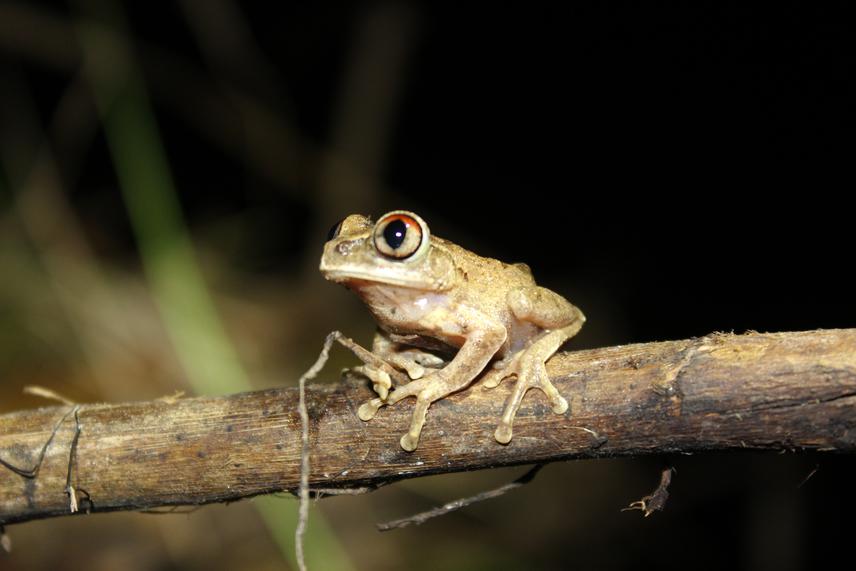Kojo Kwakye Ofori-Amanfo
Other projects
This project will introduce acoustic devices to monitor cryptic and endangered frogs; improve habitat conditions; and increase involvement of local stakeholders.

Leptopelis spiritusnoctis.
The KNUST Wewe River is a primary drainage system of one of southern Ghana’s largest watersheds, and home to 12 frog species. It also harbours many other endangered wildlife including IUCN Vulnerable West African Dwarf Crocodile (Osteolaemus tetraspis), the world’s smallest extant crocodile species, and the Critically Endangered Hooded Vulture (Necrosyrtes monachus). Unfortunately, many of these species’ populations are experiencing dramatic declines due to illegal farming activities, fuel-wood extraction, and inappropriate waste disposal into the Wewe River. To promote ecological and social interventions to prevent these species’ extinctions, therefore, the KNUST Wewe River Amphibian Project (K-WRAP) was initiated as a rapid response action. On our 1st RSG K-WRAP, we restored degraded habitats; kick-started an interactive educational programme; and established baseline data sets and local capacity. However, the traditional sampling methods we used to collect datasets have so far failed in finding some of the known cryptic and endangered frogs including: Yapo River Frog (Phrynobatrachus villiersi), golden-backed frogs (Amnirana albolabris and A. occidentalis) and night spirit frogs (Leptopelis spiritusnoctis and L. occidentalis).
On this second phase of K-WRAP therefore, we will deploy automated acoustic monitoring gauges to detect such species from their vocalisations. We will also plant 1,000 more native trees to connect to previously restored areas to promote natal and breeding dispersal of declining populations. As a new introduction, we will also improve waste management practices by providing waste bins along the river and at other vantage places. Furthermore, we will increase our educational campaigns including talks, radio broadcasts and the celebration of the 9th annual Save The Frogs Day among the university community and surrounding localities.